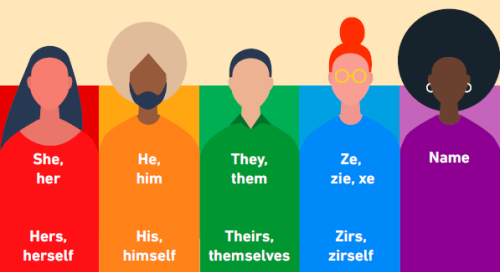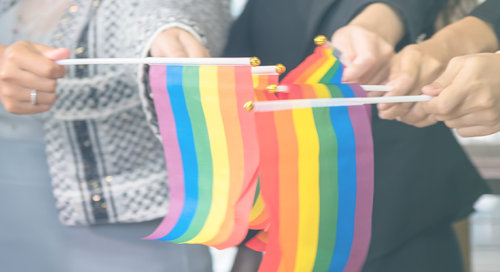10 Ways to Promote a Culture of Respect and Belonging for LGBTQ Employees

June is Pride Month, celebrated all around the world, and at ManpowerGroup we are proud to show our support to the community. Pride Month is widely recognized as a time to celebrate diversity and inclusion and show allyship to members of the lesbian, gay, bi, trans and queer (LGBTQ+) community. For organizations and businesses around the world, it’s also a reminder that we need to hit the accelerator on making workplaces welcoming for all. Across the hundreds of thousands of clients ManpowerGroup works with globally, we are helping our partners align their ambitions with clear, actionable plans to hire more inclusively and keep the diverse talent they hire. Here are 10 ways to start:
Do your research.
Start with the United Nations Human Rights Office’s Standards of Conduct. Reflecting the input of hundreds of companies across diverse sectors, it offers guidance on how to respect and support the rights of LGBTQ+ people in the workplace, marketplace and community.
Develop an effective -and global- corporate diversity, equity, inclusion and belonging (DEIB) policy
Your policy should articulate your commitments and clearly reference sexual orientation, gender identity and expression, and sex characteristics/intersex status. It should also explain your company’s responsibilities and employees’ responsibilities and outline what will happen if that policy is violated. Multinational companies must also have a cohesive global implementation strategy—mindful that concepts of equal rights and fair treatment of LGBTQ+ people may not be well-institutionalized in many markets or regions.
Ensure buy-in from employees and management, including commitments to take the DEIB strategy forward.
Expand employees’ soft skills in empathy by exposing them to other points of view and perspectives. Regularly train them on DEIB, ensure they’re familiar with your policy, and consider incentivizing leaders by hard coding their commitments into performance frameworks.
Leverage technology to establish best practices.
The DEIB technology now exists to support your company with policies and practices, provide timely analytics, identify and reduce bias, introduce greater transparency and visibility, and support employee training. Download the World Economic Forum’s Diversity, Equity and Inclusion 4.0 toolkit to explore all the opportunities and accountabilities now afforded by tech.
Create a culture of conscious inclusion.
A welcoming workplace is one where people with different demographic and psychological backgrounds feel seen, heard and valued—not by blending in, but by providing a different perspective to reduce the homogeneity of attitudes, values and beliefs. This also keeps groupthink and decision-making biases in check. If your organization is serious about allyship and equal opportunity for LGBTQ+ employees, you must go beyond programs. To truly change culture, take proactive steps to promote a diverse pool of candidates for senior leadership and board positions, and train and incentivize managers and employees on what it means to be inclusive.
Appoint leaders with these three characteristics.
A change in culture starts from the top. If your organization is serious about its DEIB policy, start by building a diverse leadership team within your organization. Make sure people with higher levels of curiosity, humility and courage are not overlooked. Ideally, you want leaders who demonstrate a passion for learning, humility to admit when they make mistakes and courage to act boldly and speak out against injustices.
Build an LGBTQ+ support network.
For pro-LGBTQ+ policies to be effective in attracting and retaining LGBTQ+ employees, your company’s efforts should have high visibility. For example, support efforts by LGBTQ+ employees to create their own staff groups and extend the same opportunities to them for extracurricular activities as you would to any other group.
Take it to the community.
Partnerships with local LGBTQ+ groups, such as youth centers, community centers, advocacy groups and charities, exhibit long-term commitment to LGBTQ+ employees. This can also help your company better understand the challenges those employees face, informing your corporate policymaking and providing a way for your company to support positive social change.
Listen, apologize and learn from your mistakes.
Odds are that you will make mistakes along the way. If you’ve been called out for a microagression or an act of exclusion toward an LGBTQ+ colleague or employee, it’s important to respond with compassion, concern and humility. Make the other person feel heard, sincerely apologize and don’t make it about you.
Set targets and track your progress.
Your company’s key decision-makers should receive regular progress reports on DEIB efforts, including updates on employee experience and engagement levels. Assign a senior-level officer to oversee and direct DEIB initiatives, education and training. What gets measured gets done. At ManpowerGroup, we believe organisations have the responsibility to be a positive contributor to societal change. That means intentionally building diverse and inclusive workplaces and hiring the best employees based on talent without discrimination. Not only is this the right thing to do, but studies repeatedly show that inclusive practices have a positive impact on your bottom line. Source: ManpowerGroup Here’s a quick tip! Download our LGBTQ+ Inclusive #WordsatWork Guide to learn about proper pronoun usage and more.

















